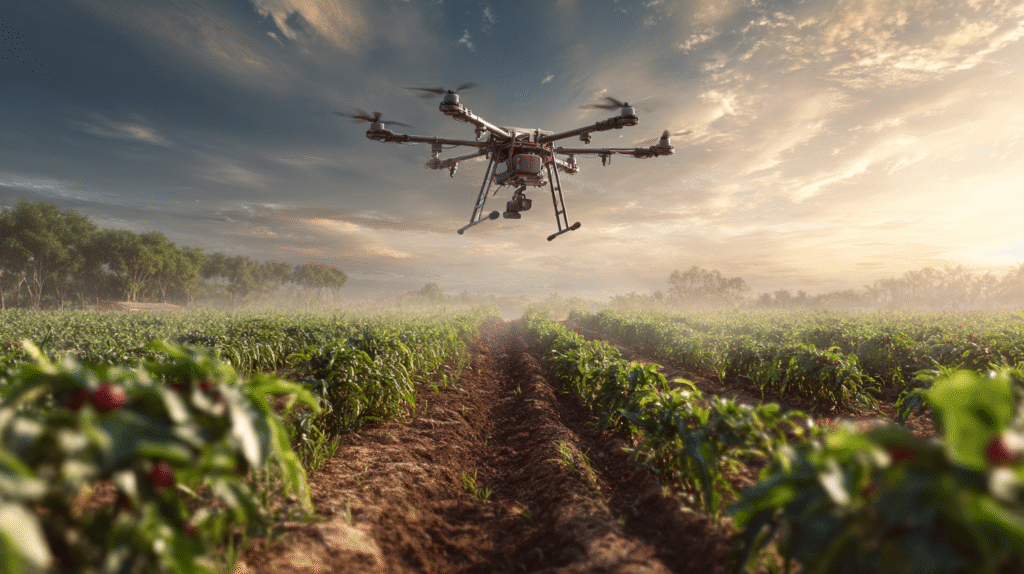(Adapted from Dr Ngonidzashe Chirinda, “Seeds of stability: How African agritech can secure global food futures,” BusinessGreen Opinion, 3 October 2025)
If we abandon the idea that food security is a purely local concern, and instead accept it as a shared global imperative, then Africa’s agritech revolution becomes not just desirable—but essential. As Dr Ngonidzashe Chirinda (University Mohammed VI Polytechnic) argues, strengthening agricultural systems across Africa is a development priority and a strategic necessity for regions far beyond the continent’s borders.
From Local Fields to Global Plates
What farmers choose to plant today in Kenya or Ghana may, in a few seasons, influence what ends up on dinner tables in London, Berlin or Tokyo. In an era of climate volatility, supply chain shocks and geopolitical disruption, reliance on a narrow band of global producers is a risky strategy.
Africa, with its vast arable land, youthful population and increasing digital connectivity, is uniquely positioned to diversify global food supply—and to do so more sustainably. But that potential won’t be realised by chance. It requires bold investment in agritech across three key dimensions: resilience, sovereignty, and integration.
Resilience: From Monocultures to Diversity
The current global system favours a handful of staple crops and a few regions. That lack of diversity leaves it brittle in the face of climate stress, pest outbreaks or supply shocks. Africa must avoid adopting that same fragility. Instead, the agritech agenda there should prioritise:
- Climate-adapted seeds and cropping systems (drought-tolerant, nitrogen-fixing, pest-resistant)
- Digital tools (precision farming, remote monitoring, AI-based soil diagnostics)
- Circular models (regenerative practices, intercropping, soil rehabilitation)
By building more flexible and adaptive systems, African agriculture can buffer itself—and by extension, buffer the world—against shocks.
Sovereignty: Power, Not Paternalism
Too often, interventions in African agriculture come from outside, prioritising donor interests or crop exports for foreign markets. True sovereignty means farmers, communities and local governments have agency to shape:
- what is grown,
- how it is grown,
- where profit accumulates (i.e. value-addition within Africa, not just raw exports).
This demands not only technological access, but institutional support: land rights, local R&D funding, extension services and market access. Without that balance, agritech runs the risk of embedding dependency, not empowerment.
Integration: Bridging the Local and Global
Africa cannot—and should not—be siloed from global trade, investment or innovation. But integration must be smart. The continent should position itself as:
- a supplier of resilient crops to global markets,
- a hub for agritech innovation (drawing on its young talent and unique challenges to inspire new solutions),
- an equal partner—not a subordinate—in bilateral and multilateral agricultural systems.
Importantly, global markets and policy frameworks (e.g. carbon markets, climate funds, trade agreements) need to shift from extractive mindsets to partnership models that reward sustainability, local value chain development and equitable growth.
What Must Change — And Fast
To unlock this vision, several shifts are urgent:
- R&D and investment must move inwards. African governments and institutions should co-invest significantly in agritech, rather than cede the frontier to external players.
- Regulatory frameworks must be adaptive. Seed registration, biotech rules, data sovereignty laws and trade regulations all must evolve to enable innovation while protecting farmers.
- International funding must realign. Donors and climate funds should shift from “project aid” to catalytic systems funding—supporting infrastructure, digital backbone, local capacity.
- Regional value chains require scale. Cross-border transport, storage, processing and logistics must be developed so that yields translate into marketable goods—not waste.
- Private sector engagement must be inclusive. Agritech firms should embrace business models that share risk and reward with local farmers, rather than extract value unilaterally.
Why the World Should Care
We no longer live in a world where food production in one corner is isolated from consumption in another. Climate change, conflict and supply-chain fragility mean risk is systemic. If Africa’s agricultural potential is squandered, global food security becomes more tenuous.
On the other hand, if Africa succeeds in building resilient, sovereign, integrated agritech ecosystems, it can become a stabiliser—not just in regional development, but in the global balance of food supply.
Dr Ngonidzashe Chirinda has laid down a compelling framework. Now, the test is in action—and in trust. The rest of the world would do well to listen.


